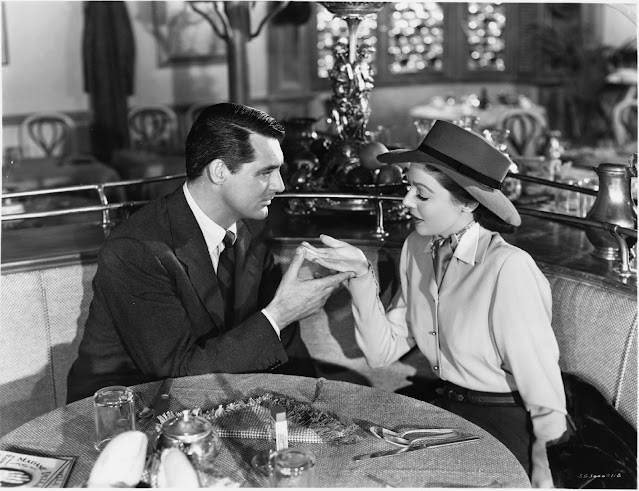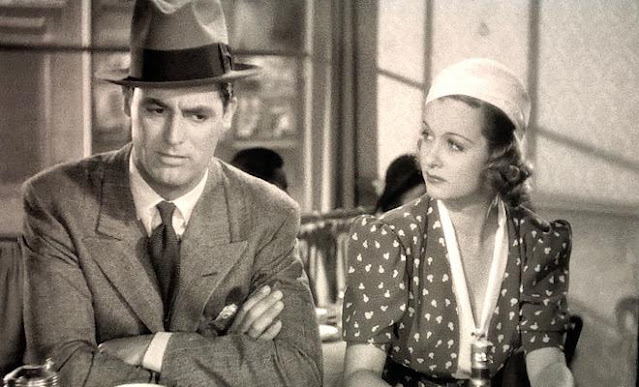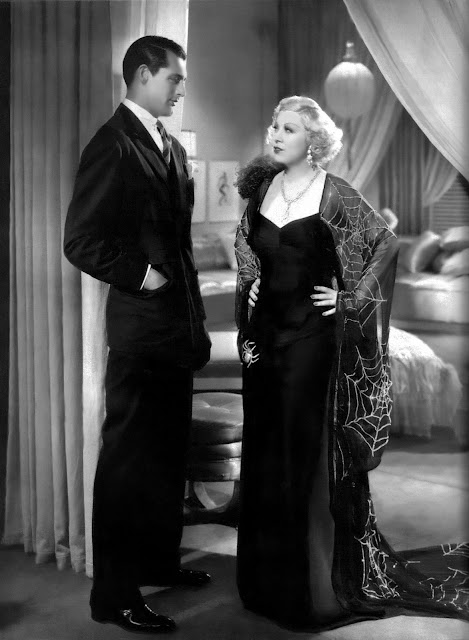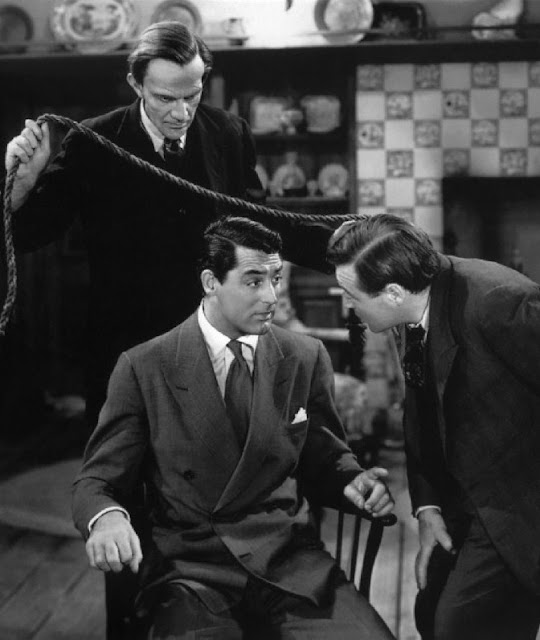"There's music, music everywhere..."
 |
| With Elissa Landi |
Enter Madame! - Review is taken from 'The Films of Cary Grant' by Donald Deschner (1973):
"Music's "in" for celluloid since the smash of Night of Love, so prepare for a deluge of temperamental opera singers on the screen as well as on Stage 2.
Elissa Landi is about the most beautiful warbler you've seen (Mary Garden, please forgive me), and she sings magnificently, thanks to the smart dubbing of the Nina Koshetz voice. Lovely 'Lissa is improving as an actress by leaps, and if sometimes she lands out-of-bounds in vivaciousness, I don't mind much.
Gilda Varesi, author, starred in the play and though Miss Varesi collabed on the screen play, the yarn's tempo has been shifted from comedy drama to farce. There's music, music everywhere, plus plenty of entertainment if you happen to be tone-deaf.
Delia Robbia at twenty-five is a diva of world rep. She surrounds herself with a mad, Sangercircus world which is shared by an entourage including a chef, maid and physician, all with ariaistic tendencies. During a performance of "Tosca" in Italy, the soprano's train contacts a candle flame and tall-darknhandsome Cary Grant saves the lady from being scorched, though he himself is pretty well hotchacharred by love.
Elissa and Cary marry and soon the guy finds himself spinning on a roundabout of concerts and tantrums. Hubby wants to go to America, wifie promises to accompany him but signs for a tour at the last sec, so Cary goes home alone. Elissa signs contract after contract, for she finds fame headier than marriage. Cary threatens divorce, the songbird flies to America. You guess the finale.
Richard Bonelli sings Scarpia authoritatively. Lynne Overman as the weary, pungent manager again proves his deft comedy talents. He should draw longer assignments, for in a certain groove he's unsurpassed.
Fast direction by Elliot Nugent is marred at times by overemphasis. Camera work by Theodore Sparkuhl and William Mellor is distinguished.
- Herb Sterne, Script
 |
New Artwork by Rebekah Hawley at Studio36 -
Number 18 - Enter Madame! (Lobby Card Style) |
Part Of

For more, see also:
Quote From Today - January 4th 2023
On This Day - January 4th 2022
On This Day - January 4th 2021




































